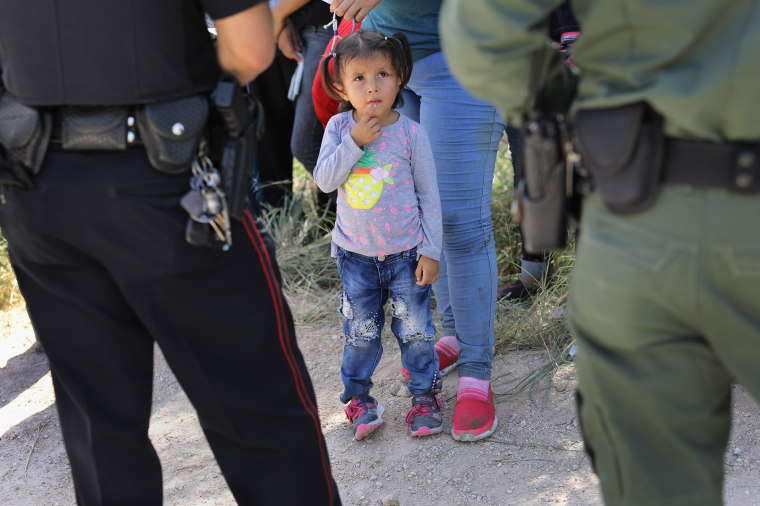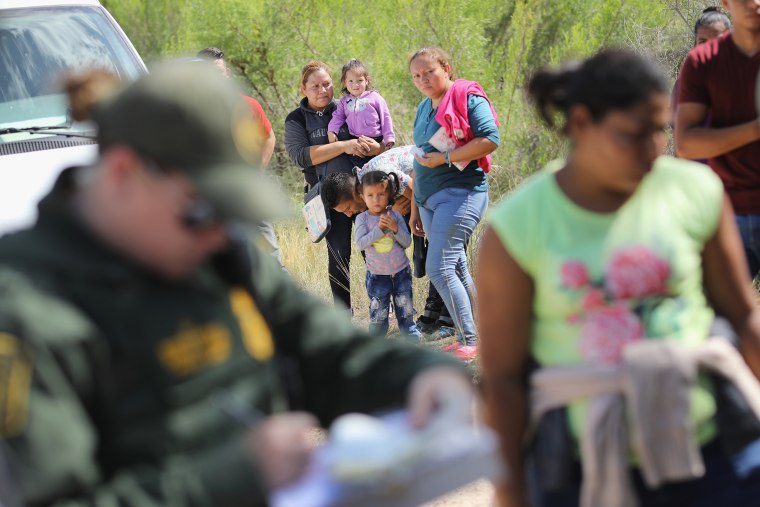All around the country today, Americans are marching to protest the Trump administration’s "zero tolerance" immigration policy. These “Families Belong Together” protests bring much-needed attention to a vital issue. But just as important as visibility is education. In particular, American citizens and officials need to understand why so many parents bring their children on such an arduous and dangerous journey to begin with. Some conservatives have argued that in fact, these parents are making an irresponsible choice and needlessly putting their kids at risk. Not only is this inaccurate, it ignores a long historical pattern.
Throughout history, parents have done everything they can to protect their children, even if it has meant sending them far from home. In the past, the U.S. often aided these efforts — but not anymore.
Between 1938 and 1940, thousands of German children were sent by their Jewish parents to Great Britain on the Kindertransport to keep them out of the hands of the Nazis. These parents did so knowing they might never see their children again but decided sacrificing their familial bonds to keep their children safe was worth it. Many baby boomers have friends who came to America as part of Operation Peter Pan, an exodus of over 14,000 unaccompanied minors from Cuba to America between 1960 and 1962. Great Britain and America welcomed these children with open arms and worked to eventually reunite those children with their parents.
Throughout history, parents have done everything they can to protect their children, even if it has meant sending them far from home. In the past, the U.S. often aided these efforts.
Simply put, parents of children from Central America bring or send their children to America because they fear the violence in their home countries will scar and kill these young souls. They come seeking asylum, seeking refuge. The so-called Northern Triangle of Central America — El Salvador, Guatemala and Honduras — has unbearably high rates of homicide, gang violence, extortion and weak judicial and law enforcement institutions. Decades of war and corruption have resulted in ordinary people being put at risk on a daily basis. Families can’t move internally for fear of being caught between warring gangs. So, parents do whatever it takes to make sure that they act in the best interest of their children, a primordial human instinct that has long been a precept of the child welfare system in our country.
Although I have a long career as a diplomat, I am also a social worker by training. Indeed, I began my professional career as the director of child welfare in Maryland. That job made me responsible for foster care, adoption, child abuse and neglect and institutional care for the children of Maryland. It was an awesome responsibility, in every meaning of that word.
My social work training, however, also gave me a set a tools and principles that have guided me ever since, even as my caseload changed from Maryland to national politics to the world. The fundamental principle in child welfare was and still is to do what is in the best interest of the child. Except in cases of neglect and abuse, children should always be kept with their parents; it is the right thing to do. So deep are familial bonds, and so traumatic is separation, that even when children are removed from a home to foster care because of parental neglect or abuse, the goal is to reunite the family if and when children can safely return to their family.
That approach to child welfare should not stop at the water’s edge. When I was counselor to then-Secretary of State Madeleine Albright, she asked me to pay special attention to our relationship with Cuba. In the midst of that work, a little boy, Elian Gonzales, came ashore after his mother drowned in a capsized boat that was trying to bring Elian and other Cubans to America. A political battle royal ensued about whether Elian should stay with his father’s uncle in Miami or be returned to his father in Cuba. Many argued that democracy in America would be better for Elian than communism in Cuba.

After months of legal and political wrangling, President Bill Clinton and Attorney General Janet Reno, undoubtedly encouraged by child advocate first lady Hillary Clinton, agreed that it was in the best interests of Elian to be reunited with his father. It was the right thing to do. If Elian had been an American citizen, separation from his family would not have been a question in the first place.
Indeed, America has often seemed more comfortable accepting children because of ideology than because of violence and risk of death. The Peter Pan operation began because parents in Cuba feared that the new communist Castro government was going to put children into military camps, outlaw religion and perhaps send teens to Russia for training. Nonetheless, after so many children had come to America, in 1965, both governments began a program to reunite children with their parents, understanding how important that was.
Today, the families of Central America may not be fighting communism or Nazis, but their fight to prevent the early death of their children by the ideology of impunity and culture of violence that reigns in the Northern Triangle is similarly profound. Although the president claims that violent immigrants are “infesting” our country, the truth is that the unaccompanied minors and the families with children want what every parent wants — a safe life for their children.
Ambassador Wendy R. Sherman served as U.S. undersecretary of state for political affairs from 2011-2015. She is the author of the upcoming book, “Not for the Faint of Heart: Lessons in Courage, Power, and Persistence.”
